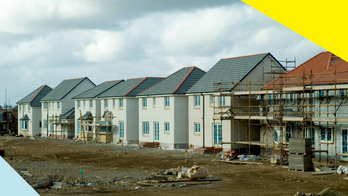
The idea of buying a new-build home is appealing to many, especially some first-time buyers. They’re generally considered to be hassle-free, and there are several ways to get onto the property market more efficiently by using a new build. But at the same time, there are also many considerations to make when buying a new-build property.
The concept of a new-build lifestyle, for many, is a pre-packaged simplicity.
Clean, stylish presentation with no need to worry about carrying out major renovation work when moving in.
Buying a new home is like owning a new car. That fresh, untouched feel with new paint and carpet smells drifting through. Families will come and go in properties over the years, but there is only one instance when a new-build property can be moved into for the first time after completion. This allure partly contributes to the desirability of new built homes.
There are, however, considerations that need to be made when buying a new build home (much like when considering what type of traditional pre-existing home to buy).
Buying a fresh, new home outright typically comes with a premium price tag. When you purchase a new build, you usually pay for convenience and modern amenities. Most new builds are geared towards modern technology and home advancements, from underfloor heating to USB and external plug sockets. However, these luxuries add to the premium pricing, and that’s before you consider any costs relating to customising materials in kitchens and bathrooms (if you can do so).
If you are a first-time buyer, you may have to look towards schemes such as Shared Ownership to afford a new build property.
Purchasing a new-build home can mean buying a property yet to be built. It requires you to put your faith and trust in a developer that will deliver your home on time and budget.
Even if the property you are buying is already completed, there are high chances that the rest of the development may not be. Roads are typically left unsurfaced until construction draws to a close, and there is also the noise to factor in. This means that as you settle, you will still be living in or around a construction site.
Delays aren’t uncommon when buying a new build home from scratch, so you need to be prepared and ensure you still have flexibility with living arrangements past the date the developer initially promised.
The number of new homes cropping up in the UK annually is a goal that needs to be met and to do so, developers face the decision of putting as many individual houses onto sites as possible. This can directly compromise the sizing of newly built homes, which are notorious for being smaller than traditional pre-existing properties in many instances.
If you are looking to upsize from a pre-existing home into a new build, then you will need to consider and assess the internal space carefully.
When you buy a new car, the moment you drive it off the forecourt, it immediately loses value. Whilst property prices for pre-existing homes are still currently rising (at the time of this article being written), the value of a new build home will drop from the moment you move in. Lenders often (but not always) require higher deposits for new builds due to concerns relating to the value, whilst knowing that you are likely paying a premium in the first place.
Furthermore, mortgage offers only tend to last around six months before you need to apply for a new one. In the event of any delays, you may find that you need to create a new mortgage application.
Settling into a new build isn’t always a straightforward process. You may find there are general snagging and quality issues that require attention from the developer. A way to overcome this is arranging for a snagging survey to be carried out just prior to the move-in. Whilst this can heighten the initial costs, it can always be done in one fell swoop rather than unearthing prospective problems one at a time, and waiting for the developer to address each one.
As with traditional pre-existing homes, however, there are a number of advantages exclusive to new build homes.
For more information on our current new build developments, click here.